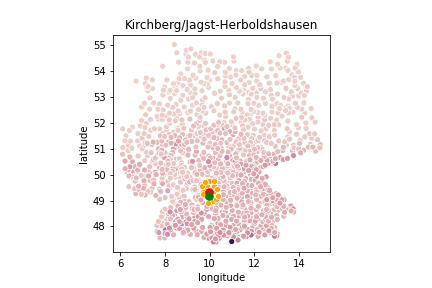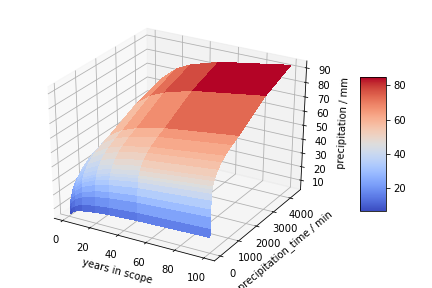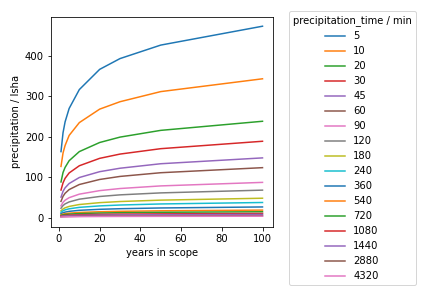This is a small tool to simplify the daily work of engineers. There is already a great DWD API called wetterdienst on github that provides weather data on minute scale. However, for designing buildings, structures and other things, data from extreme weather events is necessary. These are available in the form of KOSTRA-DWD datasets on file exchange servers, for example as Excel documents.
This is great because it should be very time-consuming to extract extreme events from the DWD database using the API. Unfortunately, working with these datasets is very unintuitive and the data is in a form that is impractical for many calculations.
The present workflow is intended to remedy this. The individual steps (5 in total) are handled in a jupyter notebook (KOSTRA_DWD_FTP_tool.ipynb). The notebook format was used on purpose because its a great way to step into Python and programming in general. If want to use this as a Python import/package, let me know.
-
Searching the nearest weather stations via the wetterdienst API. Important information about each station is stored in an Excel file (ID_stations.xlsx each stations got its unique ID). Furthermore, the location of the station is visualised for counterchecking (ID_stations.png/pdf).
-
Retrieving/downloading and extracting the current KOSTRA files.
-
Searching the KOSTRA files for the desired information based on the ID of the previously found weather station.
-
Processing, visualization (ID_mm/lsha_surf/val/years.png/pdf) and saving of the found data in different units.
mm = millimeters (ID_data_mm.xlsx). lsha = liters per second and hectares (ID_data_lsha.xlsx).
- Its your turn now. Use the notebook to automate your calculations... if your work is useful for other people let me know and ill add the functionalities ;)


